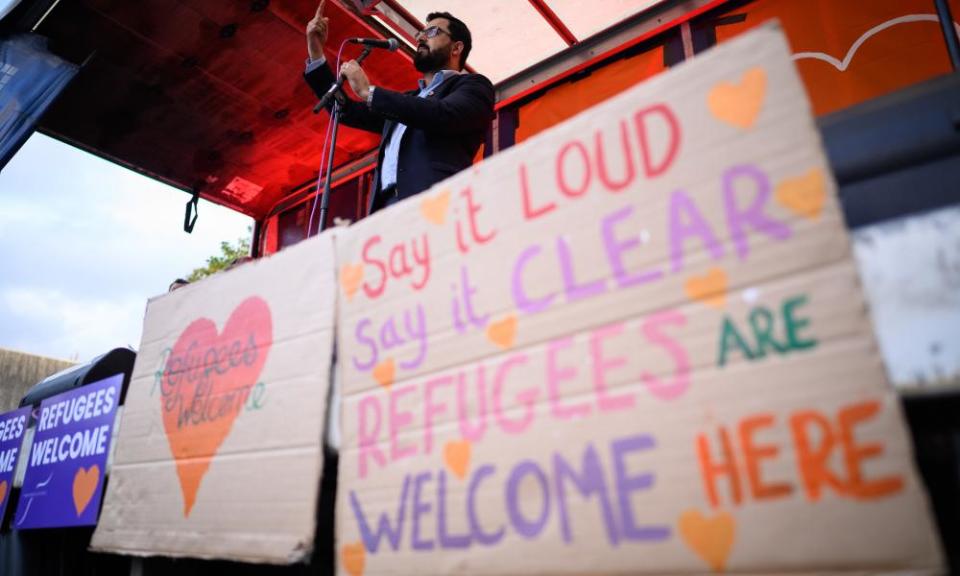Home Office refuses to reveal details of Afghans’ resettlement

The Home Office will not say how many of the airlifted Afghans qualify to be rehoused in the UK and has refused to reveal how many families have already moved out of hotels and into homes.
By calling around local authorities and devolved administrations, however, the Guardian has started to build a fractured picture of which areas have stepped up to do their bit.
The government has repeatedly said it wants a fair distribution of Afghans around the country, but has no plans to use a quota system to force every local authority to take their share – unlike in Germany, where refugees are distributed among the federal Länder using a formula based two-thirds on their tax revenue and a third on the size of the local population.
Nonetheless, all 15 local authorities in Yorkshire have agreed to house Afghans on a roughly proportional per capita basis, according to Dave Brown of Migration Yorkshire, which is coordinating the resettlement. As the region has 8% of the UK population, they are working on the basis of it accommodating 8% of the new arrivals.
So far, 44 Afghan households have been given permanent homes in Yorkshire. Among them are the family of Munib Mohammed, the five-year-old boy who died after falling out of a window in a Sheffield hotel in August.
London council officials have requested that most of the 4,000 Afghans living in hotels in the capital be dispersed around the country for longer term resettlement, protesting against the disproportionate burden and pointing out that housing costs and shortages in the capital make it challenging to find permanent housing for them all.
There is very little council accommodation available for families with a large number of children, which makes the situation more complex. There is a commitment to help, however, and negotiation continues with the Home Office, with about 300 London homes being offered.
“It is practically impossible to get a private rented sector flat in central London under the housing benefit cap, so we’re reliant on council housing to house the refugees, and there is a huge shortage of that,” one council official said, suggesting that the government offer extra funding to support refugees in the private rental sector.
Afghans do not get to choose where they are resettled and so can end up a long way away from amenities they may need, such as a mosque or halal butcher.
In Cumbria, the county council complains of a “chaotic” system in which families arrive unannounced, sometimes allocated numbers rather than names by the Home Office. Some are too big for the available housing and are sent back to hotels hundreds of miles away.
Cumbria has agreed to take 137 Afghans under the Afghan relocations and assistance policy (Arap) and has already rehoused nine families and a total of 33 people.
In Greater Manchester, which already houses a disproportionate number of asylum seekers, leaders are still wrangling with the government over funding but have agreed to take their per capita “fair share”, according to a spokesperson for Paul Dennett, the mayor of Salford, who is leading on the resettlement effort.
More progress has been made in the Midlands, where Birmingham has agreed to take 80 Afghan interpreters and their families and Herefordshire has committed to rehousing 56 Afghans by Christmas and 125 by 2021. In Coventry, 67 individuals have already been resettled under the Arap scheme, and the council has agreed to take up to 150 overall. Shropshire has agreed to take just three Arap families.
In Scotland, more than 62 families have arrived across 12 local authorities, and a further 14 families are expected over the coming weeks. Scotland’s local government association, COSLA, says councils are continuing to identify further suitable properties, and are working with the Home Office to gain a fuller picture of numbers and composition of families.
In Wales, all local authorities have agreed to rehouse Afghans, as they each did with the Syrian resettlement scheme in 2015. As of mid-September, about 230 individuals from 50 families had arrived in Wales.

 Yahoo Finance
Yahoo Finance 